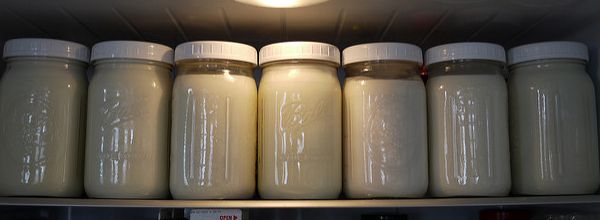Deciding to start a family with your partner is one of the most exhilarating and frightening times you’ll likely ever experience, outside of welcoming the little F1 to the world that is. Your job should not be an inhibitory factor in making that decision.
We all know that post-docs live in a purgatory of sorts: having graduated, but still considered to be training; being categorized as neither student nor faculty, but more of a hybrid. This becomes incredibly confusing to the pregnant post-doc who is trying to figure out what rights and benefits she has. Especially since, more often than not, academic institutions do not have policies in place to support the “weirdness” of the post-doc, notably when it comes to issues like maternity leave.
As a new initiate to the “Pregnant Post-Doc Club”, I’ve pulled together a few insider tips that may help as you try to plan for the biggest change in your life.
1. Make a plan.
Even though my PI hasn’t requested one yet, one of the best things I’ve done for my own sanity is to make a work-in-progress plan for my projects for the remaining time I have in the lab. This plan will help keep me honest and on task, which will be especially helpful when I inevitably fall victim to “pregnancy brain”.
2. Be organized.
Organization is essential in the lab, but I feel like now it’s more important than ever. Being pregnant is crazy enough with all of the planning and life-changing events you’re anticipating; throw lab stuff on top of it and it’s bound to make you really nuts. So start going back over your notebook to get it in order – God forbid someone needs to find something while you’re out… or hormonal. Organize all of your data and folders so that anybody can find anything at anytime, including you. The last thing you need is a call/e-mail from your technician/lab manager/PI trying to find something while you’re surviving on 2 hours of sleep over 3 days.
3. Talk to your PI.
This one can be tricky. When’s the best time to tell your PI? You’re definitely under no obligation to tell them at a specific time, but I found it relieving to tell mine a bit earlier. As a disclaimer, I am in a very lucky position as my PI is super supportive of family planning and we have a great relationship, so I was completely comfortable telling her when I did. Whenever you do decide to share the news with your PI, talk to them about reasonable time off for maternity leave, what they expect to be finished before you leave, etc. Now, more than ever, it is important to be open and communicative with your PI. Moreover, be sure to tell her/him before the rest of the lab. A surprise reveal at lab meeting may not get the reaction you’re looking for if your PI feels blind-sided.
4. Be honest and keep safe.
The stuff found in labs can be noxious and carcinogenic (duh). Be safe. Even if you haven’t told people in your lab, be aware of the chemicals you’re dealing with and if necessary, ask someone else to take care of it. Find alternatives to your protocol or materials list. Lie if you must (“I’m too busy to do this, can you help me please?” works like a charm). There’s no reason for you to put yourself in harms way, especially now.
5. The Family and Medical Leave Act (FMLA).
Given the purgatory status of post-docs, it is unlikely that you’ll have enough (or any) paid time off accrued. Thus, the FMLA is likely your best bet for getting enough maternity leave, albeit unpaid. According to the US Department of Labor, the FMLA “entitles eligible employees of covered employers to take unpaid, job-protected leave for specified family and medical reasons with continuation of group health insurance coverage under the same terms and conditions as if the employee had not taken leave”. Under the FMLA, these entitled employees are allowed up to 12 weeks of leave in a 12-month period for the birth and care of a “newborn child within one year of birth”. Still, this may not be completely straight forward depending on your own institution’s policies on how post-doctoral fellows are categorized. Moreover, you need to consider how you’re actually being funded, through either federal or philanthropic monies, as this too can impact how benefits apply to post-docs. Be sure to talk to human resources to get the full scoop.
If you’re planning on returning back to the lab, it is important to talk with your partner about childcare now. Hopefully you’re one of the lucky ones whose institute has childcare available for employees, post-docs included! If not, at-home childcare providers are possibly a more reasonably priced option. Moms within your own department can help out. Trust me.
This is obviously not a complete list, as I am still in the beginning stages of my pregnancy, so should you need more thorough guidance on handling being a pregnant post-doc, have a look at the National Postdoctoral Association’s A Postdoc’s Guide to Pregnancy and Maternity Leave. It’s a great source for a ton of nitty-gritty details.
Other resources: www.dol.gov/whd/fmla/
Thoughts? Opinions? Pregnant Post-docs and partners, what tips and suggestions do you have? What have we missed here? Please comment below!






